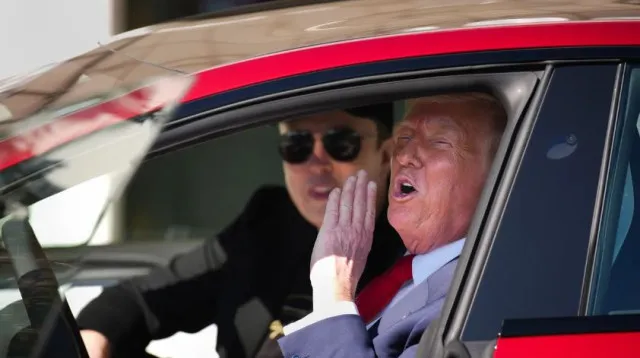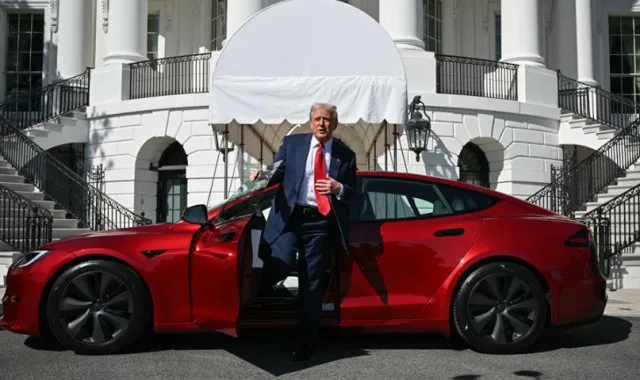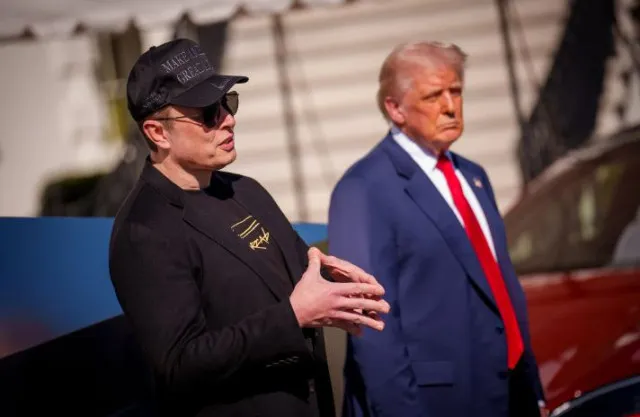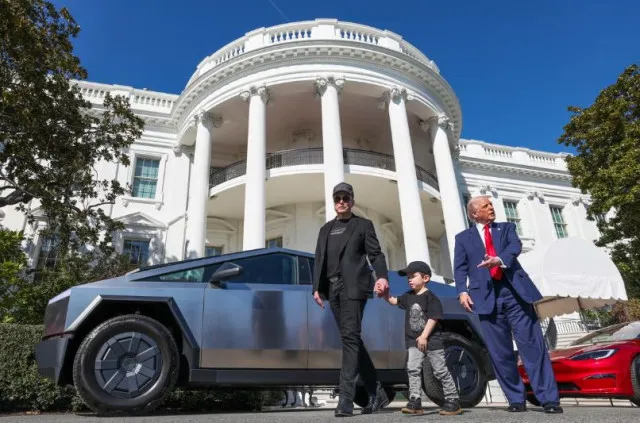Elon Musk’s Tesla escapes Trump’s harsh new auto tariffs thanks to exemption rules, leaving other carmakers facing steep penalties.
New tariff rules may reshape the industry—but Tesla stands alone with a major advantage.
Tesla is set to benefit greatly from Donald Trump’s latest automotive tariffs, announced as part of his national economic strategy.
While the tariffs aim to boost U.S. manufacturing, Tesla remains the only car company currently exempt. Critics point to Elon Musk’s close ties with Trump, but deeper analysis reveals the numbers that set Tesla apart.

Trump’s new tariffs are designed to increase domestic car production
On April 29, the White House released a fact sheet outlining plans to reduce reliance on foreign auto imports.
The new rules include a 25 percent tariff on imported cars and automobile parts.
To qualify for exemption, vehicles must contain at least 85 percent U.S.-made parts and materials.
Now, in a recent development, the White House has outlined a path for automakers to qualify for exemptions—an approach that notably favors Elon Musk’s Tesla.
A fact sheet released on April 29 details the strategy, which aims to boost domestic car production. According to the document:
“President Donald J. Trump signed a proclamation to protect national security by incentivizing domestic automobile production and reducing American reliance on imports of foreign automobiles and their parts.”

This is part of Trump’s broader economic agenda launched on April 2, branded “Liberation Day” by the former president.
Trump claims the plan will create jobs and protect American industries by pushing production back to U.S. soil.
Tesla is the only major car brand meeting the 85 percent U.S.-content threshold
Tesla is currently the only automaker that meets the strict domestic content requirement.
Three Tesla vehicles qualify: Model Y, Model Y Long Range, and Model 3 Performance.
Each of these models exceeds the 85 percent domestic content threshold needed to gain exemption.

This puts Tesla in a uniquely favorable position compared to its competitors. According to data from Fuel ARC, other models fall just short of qualifying.
Ford’s Mustang GT and Honda’s Passport AWD hover near 80 percent U.S. content.
Meanwhile, Tesla’s Cybertruck, Model S, and Model X sit between 80 and 82.5 percent.
Despite being American brands, even these models do not make the exemption cut.
Social media reactions suggest growing skepticism over Tesla’s tariff exemption
Many online users have criticized the policy, claiming it favors Elon Musk.

On Reddit, users mocked the timing of the announcement and Musk’s $290 million donation to Trump.
One commenter wrote: “There’s no way you can legitimately say the two are unrelated.”
Another added sarcastically, “What an amazing coincidence! This is.”
Some expressed intentions to avoid buying Tesla vehicles in response to the perceived favoritism.
A user noted the declining presence of Teslas in San Francisco as anecdotal evidence.
Others speculated this move will spark deeper divisions between pro- and anti-Musk consumers.
Tesla’s exemption from Trump’s new tariffs highlights the company’s strategic investment in U.S. manufacturing.
While this advantage aligns with national policy goals, the move has stirred accusations of bias.
Critics point to Elon Musk’s political connections, but Tesla’s numbers do meet the stated criteria.
Whether other automakers can match Tesla’s domestic production remains uncertain.
For now, Tesla enjoys a rare status—favored both by policy and production metrics.